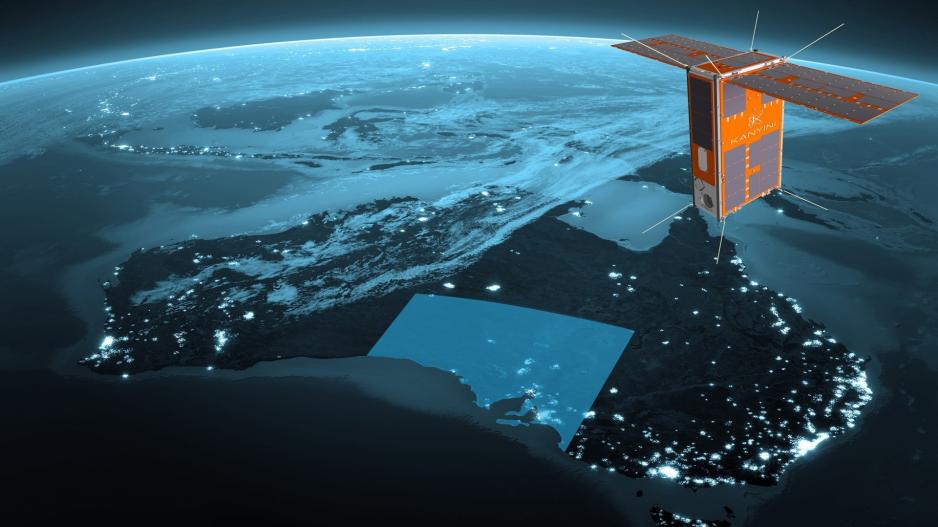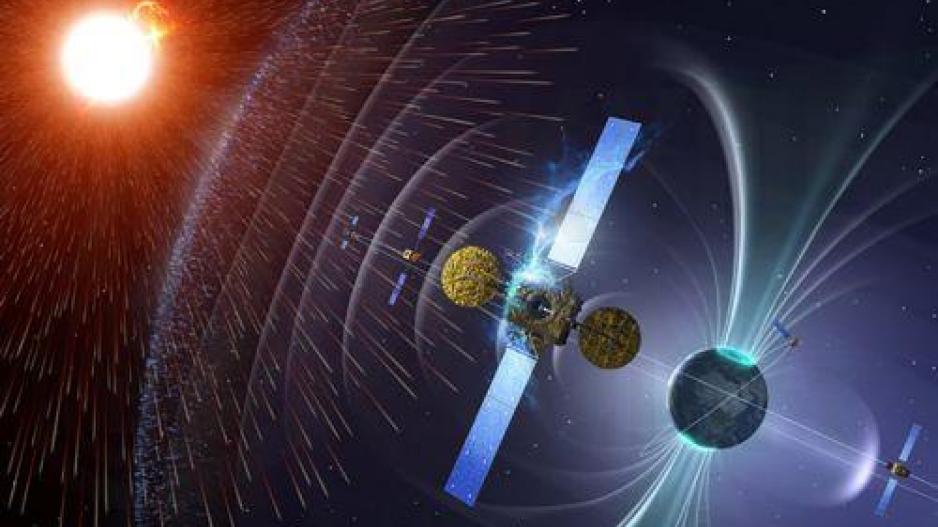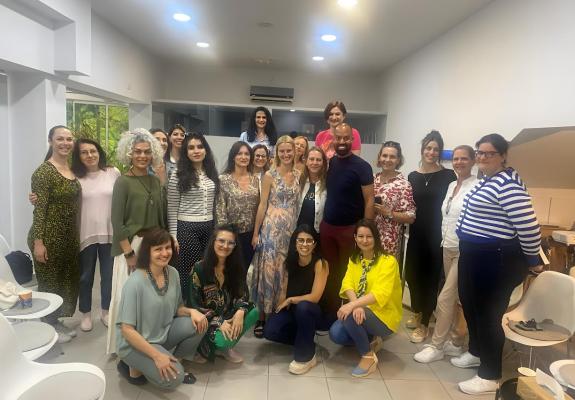High-level workshop explores Satellite-based services for Disaster Risk Management in Cyprus
A high-level workshop on "Satellite-based Services for Disaster Risk Management" took place on Wednesday, in Nicosia, under the auspices of Philippos Hadjizacharias, the Deputy Minister of Research, Innovation, and Digital Policy.
The primary objective of the event was to highlight the potential of satellite applications in the field of disaster risk management. Participants attended both online and in person, with countries such as France, Israel and USA attending remotely and over 100 top-field professionals in science, research and policy-making attended in person.
The workshop was co-organized by the Department of Electronic Communications of the Ministry of Research, the European Union Agency for the Space Program (EUSPA), and the international organization Eurisy.
According to an official press release, this is the first time such a high-level event on this subject was organized in Cyprus. Participants list included the Deputy Minister of Research, the Director of the Directorate General for Defense Industry and Space (DG DEFIS) of the European Commission, the Executive Director of EUSPA, and the President of Eurisy.
Delegates did not only shared their views on the ways satellite technologies can be used in mitigating effects of natural disasters, they also highlighted the need for further exploitation of relevant EU programs, such as European Copernicus, Galileo, and GOVSATCOM.
In his speech, read by George Komodromos, Director of the Department of Electronic Communications, the Deputy Research Minister emphasized that “investing in space means investing in the future.” He noted that the space industry is one of the fastest-growing sectors, projected to reach $634 billion by 2026, up from $175 billion in 2005. Eventually, it is expected to become the first trillion-dollar industry.
"In this new reality, Cyprus, although small in size, aims to be part of the space revolution through scaling up activities, advancing common values, and paving the way for a sustainable and resilient future," he said.

Significant progress takes place in Cyprus’ satellite infrastructure sector. An earth station, which is part of the Search and Rescue service of the EU Galileo System, is about to “land” in Cyprus and will be used for detecting and locating emergency beacons. Additionally, persistent efforts are underway to establish an Optical Gateway which would be critical for connecting Cyprus to the rest of the European Quantum Communication Infrastructure (QCI) network.
Moreover, Rodrigo da Costa, Executive Director of EUSPA, stated that the EU Space Program continues to provide tangible benefits to the EU citizens and the world. He mentioned that Cyprus embraces its use and supports its evolution.
Dominique Tilmans, President of Eurisy, claimed that the EU Civil Protection Mechanism relies on satellite mapping from the European Copernicus Programme. Copernicus offers timely and accurate geospatial information on disaster relief operations throughout Europe and beyond.
Meanwhile, a search and rescue drill was conducted at sea using space technologies and services from the EU space programs, Galileo and Copernicus. The exercise was coordinated by the Search and Rescue Coordination Center in Larnaca and took place within the framework of the Multinational Civil-Military Cooperation Exercise "ARGONAUTIS – 2023. A series of government services and aeronautical assets from foreign countries were involved in the exercise.
In conclusion, such events strengthen the networking process within the domestic ecosystem and encourage businesses in the field of space technology to be more outward-looking. In that way, the new developments in the space industry create favorable conditions for further growth in Cyprus.






